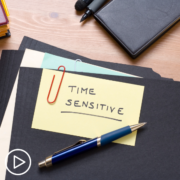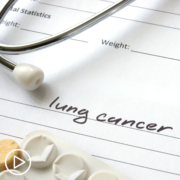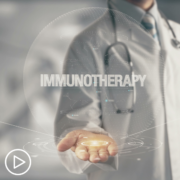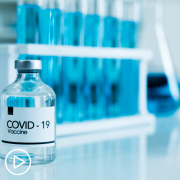Starting Time-Sensitive Small Cell Lung Cancer Treatment
Starting Time-Sensitive Small Cell Lung Cancer Treatment from Patient Empowerment Network on Vimeo.
Some small cell lung cancer (SCLC) treatment calls for time-sensitive treatment. Expert Dr. Vinicius Ernani from the Mayo Clinic shares how he works with patients who will most likely have optimal results with prompt treatment and advice for patients considering rapid treatment.
[ACT]IVATION TIP
“…at least give the treatment a try. I think that you’re going to be positively surprised that you’re going to feel better within a few weeks.”
See More from [ACT]IVATED Small Cell Lung Cancer (SCLC)
Related Resources:

|
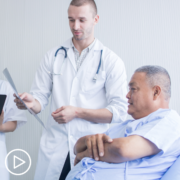
Key Resources for Small Cell Lung Cancer Patients and Families |
Transcript:
Lisa Hatfield:
Dr. Ernani, for some small cell lung cancer patients, understanding treatment options is crucial and sometimes requires swift decisions. How do you work with your patients and families to make treatment decisions that might have to be made rather rapidly?
Dr. Vinicius Ernani:
Well, small cell, as we know, it’s an aggressive type of cancer, it divides very quickly. And because of that the patients usually, they tend to be symptomatic, so they have a lot of symptoms at the time that we see them. And if this disease, if we left untreated and the patient has extensive stage, so the disease has spread, the prognosis can be poor.
That being said, because small cell divides very quickly, chemotherapy combined with immunotherapy can help these patients fairly quickly. We can see patients in a matter of two to three weeks, they report that their shortness of breath is much better, they’re feeling better, they’re more energetic, they can do more things at home.
So we can see a rapid positive response to treatment very quickly. So when I explain this to my patients, most of the patients, they have no hesitation to say, yeah, I want to proceed with chemotherapy. And I tell them chemotherapy will help you feel better and also help you survive longer. And we are very fortunate that sometimes the patients are able to live years, they’re able to meet some live, let’s say, like a wedding of a grandkid or important events in their life. So I always recommend them to at least give it a shot.
My activation tip for this question is at least give the treatment a try. I think that you’re going to be positively surprised that you’re going to feel better within a few weeks.
Share Your Feedback:
Create your own user feedback survey

